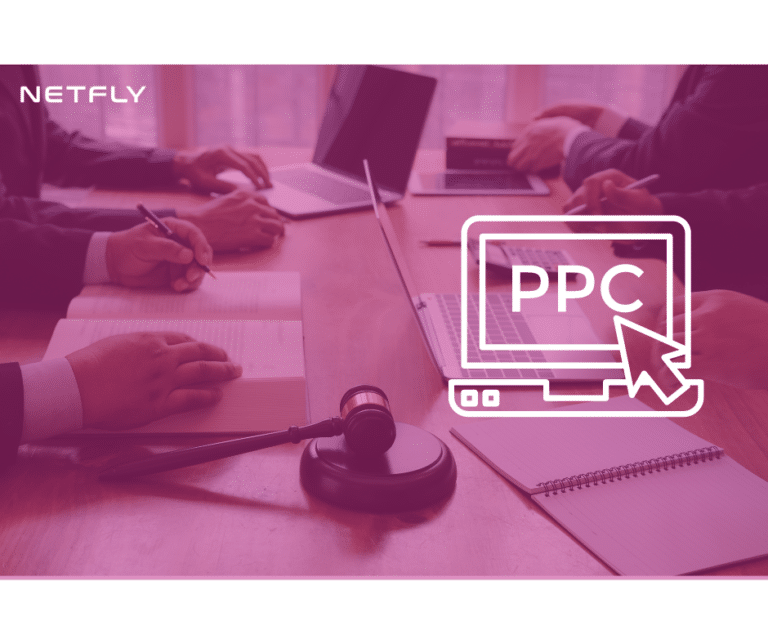Marketing your law firm online can seem challenging, but focusing on a few key strategies can make a significant difference. Start by optimizing your website to make sure it’s user-friendly, mobile-responsive, and fast. But that’s just the beginning. Leveraging content marketing through blog posts and case studies can establish your expertise. Don’t forget the power of social media; consistent, high-quality content can enhance your brand’s visibility. Curious about how PPC advertising and targeted email campaigns can drive client engagement? Let’s explore these strategies in more detail.
Key Takeaways
- Optimize your website to ensure a user-friendly design, fast load times, and mobile compatibility.
- Leverage content marketing by creating informative blog posts and case studies that address relevant legal topics.
- Utilize social media to engage with clients, share high-quality content, and enhance brand awareness.
- Invest in PPC advertising with strategic keyword selection and compelling ad copy to attract potential clients.
- Implement targeted email campaigns that segment your audience and offer valuable content with clear calls to action.
Optimize Your Website
To effectively attract potential clients, you need to optimize your website by ensuring it’s user-friendly, fast, and packed with valuable content. A well-optimized website is the cornerstone of your online presence. First and foremost, focus on creating a seamless user experience. Visitors should easily navigate through your site, finding the information they need without any hassle. Use clear menus, intuitive buttons, and a logical flow of information to keep them engaged.
Essential is another critical factor. A slow-loading website can frustrate visitors and drive them away. Make sure your site loads quickly by optimizing images, leveraging browser caching, and minimizing HTTP requests. The faster your site, the more likely visitors will stay and explore.
Don’t overlook mobile optimization. With an increasing number of users browsing on their smartphones, your site must be fully responsive. A mobile-optimized site adjusts seamlessly to different screen sizes, ensuring that all features and content are accessible and easy to read. This not only enhances the user experience but also boosts your search engine rankings, as search engines prioritize mobile-friendly websites.
Additionally, your website should be a treasure trove of valuable content. Provide insightful articles, case studies, and FAQs that address potential clients’ concerns and questions. This positions you as an expert in your field and builds trust with visitors.
Leverage Content Marketing
Building on your optimized website, content marketing becomes a powerful tool to attract and engage potential clients. By providing valuable information, you establish your law firm as a trusted authority in your field. Start with blog posts that address common legal questions and concerns. Not only do these posts improve your SEO, but they also showcase your expertise and commitment to help.
When crafting blog posts, focus on topics relevant to your target audience. For instance, if you specialize in family law, write about child custody arrangements, divorce proceedings, or prenuptial agreements. Make your posts informative but accessible, using plain language to make sure they’re easily understood by non-lawyers. Each post should offer actionable advice, demonstrating your firm’s practical experience and client-centric approach.
Case studies are another potent content marketing tool. They provide a detailed look at how your firm has successfully handled specific cases. These narratives highlight your legal prowess and problem-solving skills, offering prospective clients a glimpse into the quality of your services. Choose case studies that showcase a variety of legal issues and outcomes, emphasizing your versatility and success rate.
Incorporate calls to action in your content, encouraging readers to contact your firm for a consultation or more information. This direct approach can turn casual readers into potential clients. Regularly updating your blog with fresh content keeps your website dynamic and improves your search engine rankings.
Utilize Social Media
Harness the power of social media to broaden your law firm’s reach and engage with potential clients on platforms where they spend substantial time. By strategically utilizing social media, you can enhance your client engagement and boost brand awareness, making your firm more accessible and recognizable.
First, choose the right platforms. LinkedIn, Facebook, and Twitter are particularly effective for law firms. LinkedIn is invaluable for professional networking, while Facebook and Twitter can help you connect with potential clients on a more personal level. Tailor your content to each platform to maximize its impact. For instance, share detailed articles and case studies on LinkedIn, while using Facebook for client testimonials and Twitter for quick legal tips or updates.
Next, focus on consistent, high-quality content. Post regularly to keep your audience engaged. Share blog posts, legal news, case results, and educational videos. Engaging visuals and infographics can also make complex legal information more digestible. Encourage interaction by asking questions, conducting polls, and responding promptly to comments and messages.
Additionally, leverage paid social media advertising to further amplify your reach. Target specific demographics and interests to attract the right audience. Sponsored posts and ads can significantly enhance your visibility and drive traffic to your website.
Invest in PPC Advertising
Investing in PPC advertising can rapidly boost your law firm’s online visibility and attract high-quality leads. Pay-Per-Click (PPC) advertising offers an immediate way to get your firm in front of potential clients exactly when they’re searching for legal services. To make the most of your investment, focus on strategic keyword selection and compelling ad copy.
Start by identifying the keywords that your potential clients are likely to use when searching for legal services. Use tools like Google Keyword Planner to find high-traffic keywords relevant to your practice areas. Be specific; for instance, instead of just using ‘lawyer,’ target ‘family law attorney in [Your City].’ This specificity ensures your ads reach users who are more likely to need your particular services, thus enhancing the quality of your leads.
Next, craft ad copy that not only grabs attention but also clearly communicates the value your firm offers. Highlight your unique selling points, whether it’s your years of experience, client testimonials, or a free initial consultation. Remember, your ad copy should be concise but persuasive, urging potential clients to take the next step—clicking on your ad to learn more.
Don’t forget to set a realistic budget and continuously monitor your campaigns. Analyze which keywords and ad copies are performing best and adjust your strategy accordingly. PPC platforms often provide detailed analytics, so use this data to refine your approach. Over time, this will help you achieve a higher return on investment and more effectively allocate your marketing budget.
Implement Email Campaigns
While PPC advertising boosts immediate visibility, implementing email campaigns can nurture these leads into loyal clients. Imagine having a direct line to potential clients, right in their inbox. That’s the power of email marketing. It allows you to provide personalized communication, keeping your law firm top-of-mind without being intrusive.
Start by segmenting your email list based on the type of legal services your recipients are interested in. By tailoring your content, you’ll guarantee each email speaks directly to their needs. Personalized communication makes your clients feel valued, increasing the likelihood they’ll choose your firm when they need legal assistance.
Incorporate client testimonials into your email campaigns. Real-life success stories can build trust and credibility, showing potential clients that you’ve successfully handled cases similar to theirs. A well-placed testimonial can make a significant difference in converting a lead into a client.
Don’t forget to offer valuable content. Share insights on legal trends, offer tips relevant to your practice areas, or provide updates on new laws. This positions your firm as an authoritative source of information, making recipients more likely to turn to you when they need legal help.
Always include a clear call-to-action. Whether it’s scheduling a consultation, downloading a free guide, or simply replying to the email, make it easy for recipients to take the next step.
Lastly, monitor the performance of your email campaigns. Use analytics to track open rates, click-through rates, and conversions. This data will help you refine your strategy and guarantee your emails are as effective as possible.
Frequently Asked Questions
How Should I Handle Online Reviews and Client Testimonials for My Law Firm?
You should handle online reviews and client testimonials by responding promptly to both positive and negative feedback. Encourage feedback regularly, and show appreciation for clients’ input. This strategy builds trust and improves your firm’s online reputation.
What Is the Importance of Having a Mobile-Friendly Website for My Law Firm?
Having a mobile-friendly website is essential for your law firm. Mobile optimization guarantees client accessibility, making it easy for potential clients to find and contact you on their devices. You’ll attract more clients and improve engagement.
How Can I Track the Success of My Online Marketing Efforts?
You can track the success of your online marketing efforts by implementing conversion tracking on your website and monitoring social media engagement. These tools provide valuable insights, helping you refine your strategy and boost your firm’s online presence.
What Role Does Local SEO Play in Marketing My Law Firm Online?
Local SEO is essential. By optimizing Google MyBusiness and securing local citations, you’ll boost your law firm’s visibility in local searches. This drives targeted traffic, increasing client inquiries. Don’t overlook these strategic, high-impact tactics.
How Can I Build a Strong Online Reputation for My Law Firm?
You need to leverage social media and content marketing to build a strong online reputation. Share valuable legal insights, engage with your audience, and consistently post high-quality content to establish credibility and attract potential clients.
Conclusion
By focusing on optimizing your website, leveraging content marketing, utilizing social media, investing in PPC advertising, and implementing targeted email campaigns, you’ll strategically position your law firm for online success. These essential tips will enhance your online presence, engage potential clients, and drive growth. Don’t miss out on the opportunity to showcase your expertise and stand out in a competitive market. Start implementing these strategies today and watch your law firm thrive.










